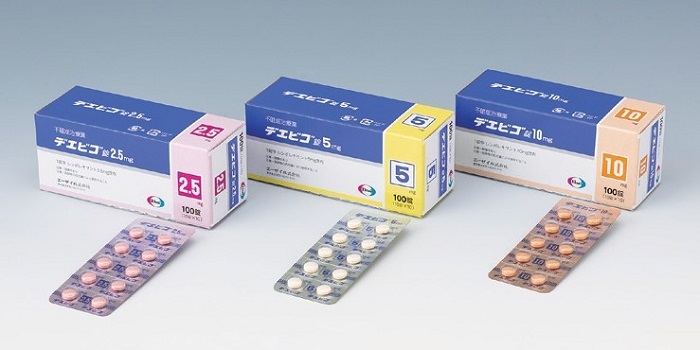Chasing Merck, Eisai launches insomnia drug Dayvigo in Japan

Eisai has launched its insomnia drug Dayvigo in Japan, the second in a new class of medicines after Merck & Co’s Belsomra, which made its debut there in 2014.
Dayvigo (lemborexant) is a dual orexin 1 and 2 receptor antagonist (DORA), a class which is billed as having fewer “morning-after” effects, such as drowsiness, memory problems and a risk of falling, than current insomnia drugs that work via GABA.
It was approved by Japan’s Ministry of Health, Labour and Welfare (MHLW) in January based on two studies (SUNRISE 1 and 2) that showed improved sleep with fewer side effects than zolpidem, a generic sleeping pill.
Merck & Co’s Belsomra (suvorexant) was the first DORA to reach the market, but despite that promise hasn’t grown as quickly as expected, making global sales of just over $300 million last year.
It has been held back by the extremely low cost of established, generic insomnia drugs, which have dragged down the overall value of the market for medicines to aid sleep.
Belsomra’s modest sales haven’t stopped Eisai predicting blockbuster revenues for Dayvigo, and approval in Japan is another step on its path to growing the brand after it was approved by the FDA last December for insomnia characterised by difficulties with sleep onset or maintenance.
Dayvigo launched in the US last month after completing scheduling by the Drug Enforcement Administration (DEA) – required for any drug deemed to have a risk of dependency.
The two approved DORAs could also be joined by a third – Idorsia’s daridorexant – which has just cleared a second phase 3 study and is due to be filed for approval around the end of this year. Meanwhile, Minerva Neurosciences and Johnson & Johnson’s Janssen pharmaceuticals unit have a selective orexin 2 receptor antagonist, called seltorexant, in mid-stage testing.
Analysts have suggested that having multiple DORAs available could kickstart sales of the class, raising the level of engagement with prescribers.
Decades of reliance on generic ‘Z’ drugs like zolpidem and zopiclone has made doctors less inclined to prescribe a pharmacological treatment for sleeping problems, they suggest. Safer drugs coupled with a growing recognition of the importance of healthy sleep could help grow the market.
Last year, the FDA slapped new warnings on the labels of a range of insomnia drugs – including zolpidem – after reports of sleepwalking, sleep driving and other potentially hazardous activities while not fully awake.
In Japan, Dayvigo slots into Eisai’s insomnia franchise alongside Lunesta (eszopiclone), which was launched in Japan in 2012 and brought in ¥12.7 billion ($117 million) in the company’s last financial year.
Eisai also has aspirations to extend the use of Dayvigo into new areas, including in dementia to reduce night-time wandering and falls, and has reported some positive data in Alzheimer’s disease patients.
The company formerly had a partnership with Purdue Pharma for Dayvigo, but took sole ownership of the drug in May 2019 after Purdue became embroiled in litigation focusing on its involvement in the US opioid crisis.











